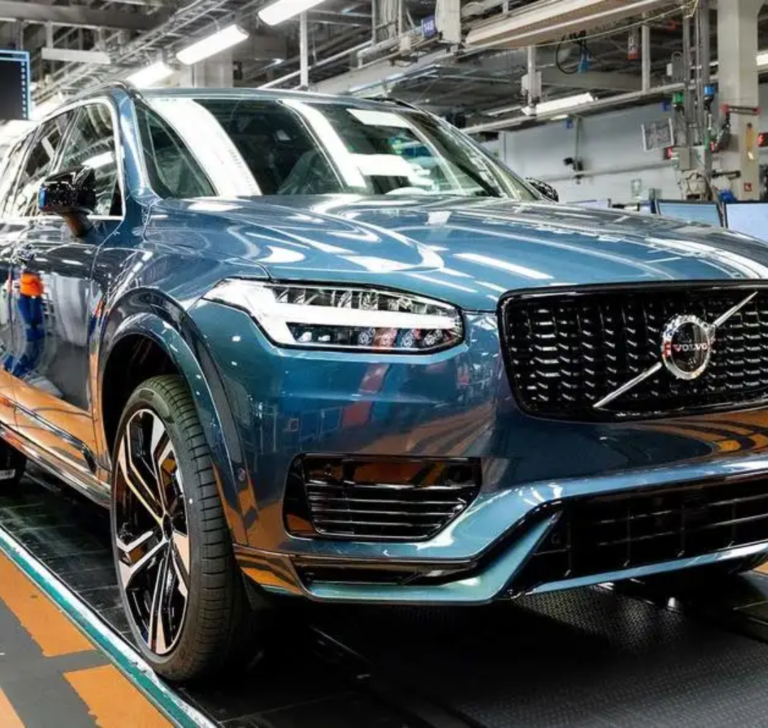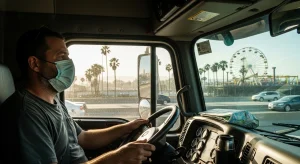The XC90 was the last diesel model manufactured by Volvo Car AB
Volvo Car AB has marked the end of an era. This week, the automotive company has concluded the production of its last diesel-powered vehicle. From now on, Volvo plans to focus exclusively on manufacturing electric vehicles until the year 2030.
The XC90 was the last model manufactured at the Torslanda plant in Sweden on March 26th. With this step, Volvo Car bids farewell to diesel technology, although it will continue producing vehicles with gasoline engines. The company proudly declared, with a touch of melancholy, “We have assembled our last diesel car,” Erik Severinson, Volvo Car executive in charge of new cars and operations strategy, confirms the company’s assurance of providing good deals for customers, even without diesel vehicle production.

Volvo Car became the first vehicle manufacturer to commit to gradually phasing out fossil fuel-based vehicles in 2017. Since that year, the company began delving further into creating hybrid and fully electric models.
Diesel engines played a significant role for Volvo over the years, significantly boosting sales figures at one time. In Europe, diesel vehicle sales peaked nine years ago, but last year they fell to 14%.
The XC90 was pivotal for the brand’s resurgence since 2014, being the first vehicle manufactured with new engines developed under the direction of Li Shufu of Geely. The last manufactured XC90 will be exhibited in a Volvo museum in Gothenburg next month.
What this step means for other manufacturers
Diesel, initially marketed as a cleaner alternative to gasoline, experienced significant success in the early years of the century, but its demand declined after Volkswagen AG admitted in 2015 to using software to manipulate emissions tests.
European electric vehicle manufacturers face challenges in their market share due to decreasing subsidies and competition from Tesla Inc. and Chinese brands. Volvo Car has cut costs and stopped funding Polestar, an unprofitable electric vehicle manufacturer owned by Geely.
Although Volvo Car will continue to support its diesel customers and supply spare parts, its commitment to electric vehicles will not waver, as it perceives greater long-term growth in this technology. This decision represents a significant step toward phasing out fossil fuels. Although other manufacturers are also beginning to gradually move away from fuel vehicle production, it remains to be seen what the next steps will be toward a complete transition to zero-emission vehicles.

The Wildest Truck Modifications on the Road Today
Truck customization has become a serious industry, with some builds rivaling high-end RV conversions in complexity and cost. From redesigned sleepers to upgraded suspension systems, these modifications do more than change appearance — they alter weight, electrical load, and the technical profile of the truck.

The most dangerous states in the U.S. during winter weather
While winter conditions are hazardous across the country, some states experience significantly higher accident rates during this season. A study by Samsara, a safety and

Winter storm disruptions lead to FMCSA HOS relief in 40 states
Motor carriers and drivers providing direct assistance in relief efforts in the affected states are covered by a hours-of-service (HOS) exemption. Over the weekend, a

Air Quality Alert in California Impacts Transportation
An air quality alert has been issued as high levels of fine particle pollution (PM2.5) trigger health warnings across several parts of California. The situation is affecting visibility, driver health, and logistics operations, forcing transportation professionals to take extra precautions on highways and in urban corridors

Winter Storm Survival on the Road: What Truck Drivers and Fleet Operators Need to Know Now
Winter storm with snow, ice, and extreme cold are creating dangerous highway conditions across multiple states, forcing truckers to make critical safety decisions before turning the key.

Miles of love: stories of truckers and their four-legged co-pilots
The love between truckers and their pets is a strong bond, and these stories will surely warm your soul. Love manifests itself in many ways,

Hi my family member I want to say that this post is awesome nice written and come with approximately all significant infos I would like to peer extra posts like this.